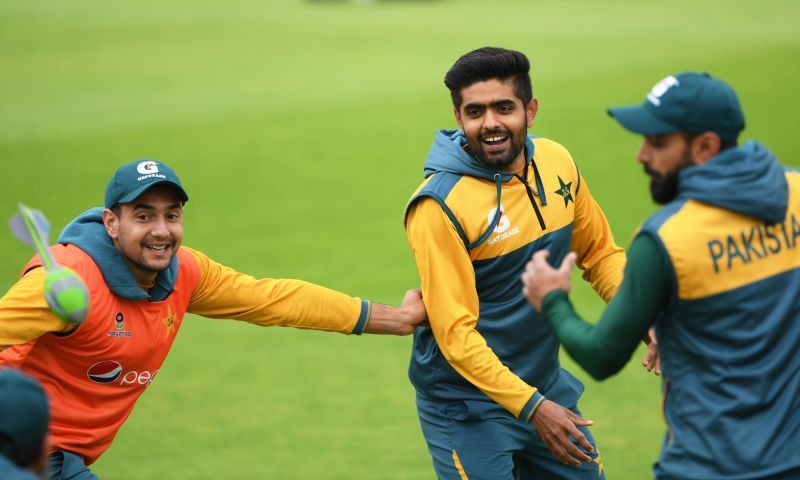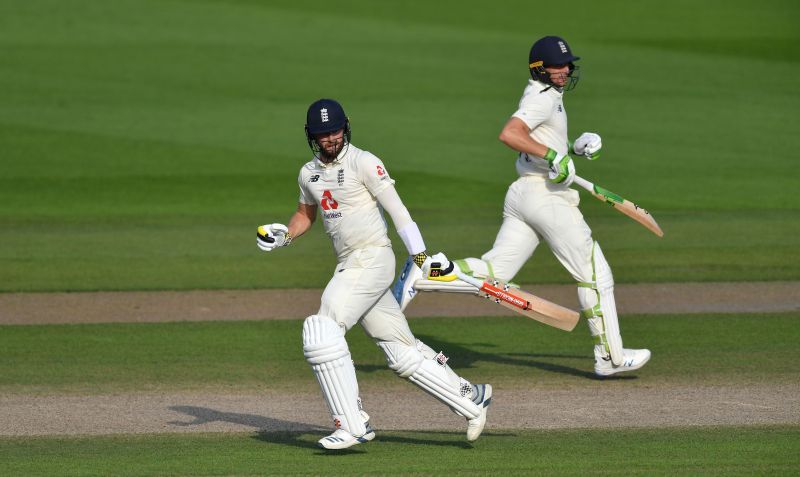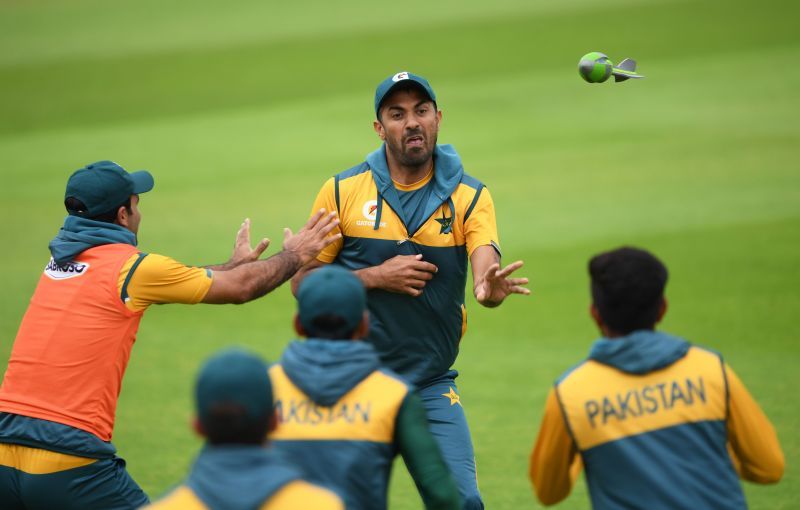
Pakistan's unpredictability: Scourge of frustration in Tests; source of optimism in T20Is

On 7th August, 2020, Pakistan, courtesy an effervescent spell of bowling, had cast themselves as the protagonists of the 1st Test against England at Old Trafford.
Prior to Tea on Day 3, the visitors had skittled England out for 219, fashioned themselves a 107-run first innings lead and had started harboring ambitions of an unprecedented triumph on English soil.
Yet, in complete contrast to the crests they had scaled across the opening couple of days, Pakistan somehow managed to push the self-destruct button, with their proclivity to fluctuate between the extraordinary and the ordinary being laid bare for everyone to witness.
Over the course of the next few hours, Pakistan, akin to several previous flashes of brilliance in that encounter, established themselves as a side in ascendancy, again.
Having set the hosts a target of 277, the tourists reduced the Three Lions to 117/5 on Day 4, with a shaky-looking Chris Woakes and an under-fire Jos Buttler at the crease.
Post that though, Pakistan let their foot off the pedal, became a tad complacent and perhaps, dug deep into their unpredictable reserves to produce an insipid display. In turn, England snatched victory from the jaws of defeat and the visitors simply couldn’t recover in time, even as the remaining games slumped to damp squibs.

Unsurprisingly, countless cricket enthusiasts brought their swords out trying to dissect what had indeed gone wrong for Pakistan, especially in a game where they had been in control, bar the final session.
And, rather promptly, most arrived at a conclusion that pointed towards Pakistan’s inability to maintain their intensity throughout the Test. Or, in other words, their infamous trait of being predictably unpredictable.
Fortunately for the Men In Green though, they now come face to face with a format that perhaps rewards being erratic. Though the shortest version of the game obviously demands certain levels of consistency for success, it is, in all likelihood, the only form of cricket where a team can be great only for five overs out of 40, and still win.
As for the squad Pakistan have at their disposal, one reckons that the players in their roster seem much more capable of causing ripples in the hustle and bustle of T20Is.
Babar Azam will be key for Pakistan in the T20Is against England

For example, Babar Azam, often considered the archetypal modern Pakistan batsman, still lacks a shade of pedigree and match-winning ability in Test cricket. In white-ball cricket though, the Pakistan skipper is a different animal altogether.
At times, Babar Azam has dragged the Men In Green out of holes that seemed primed to derail their charge. And, while there has been the odd instance of that happening in red-ball cricket too, that number multiplies manifold in the shorter versions of the sport.
To put things into perspective, Babar Azam is one of only two active batsmen to average more than 50 in ODIs (3359 runs at an average of 54.17) as well as T20Is (1471 runs at an average of 50.72).
And, to add weight to that argument, the other player on that list happens to be a certain Virat Kohli.
Elsewhere, the presence of veterans Mohammad Hafeez and Shoaib Malik places Pakistan in much better stead, as far as upsetting the English apple cart is concerned. The pair has plied their trade in international cricket for years and each possesses the know-how to alternate between different playing styles.
On the bowling front, Shadab Khan is a menace in white-ball cricket whereas Imad Wasim’s darts into the stumps cause more than a furrowed brow among the opposition.
As for their pacers, well, that is an area that has not really troubled Pakistan over the years, although they would’ve dearly loved someone with a tad more experience, especially when the going got tough in the Test series.

The likes of Mohammad Amir and Wahab Riaz fit that particular bill optimally. And, more interestingly, the pair, courtesy its decision to abandon red-ball cricket, seems to have much more to prove, considering its performances in ODIs and T20Is could ultimately prolong or trim down their respective international careers.
More importantly though, apart from the players in their ranks, Pakistan, much like the West Indies, seem better cut out for the shorter formats.
Firstly, the Asian outfit boast match-winners in abundance. Players of the ilk of Fakhar Zaman and Sarfaraz Ahmed have not particularly showcased the continuity necessary to succeed in Tests, although their ability to pull out unexpected rabbits remains an asset in limited-overs cricket.
Fast bowlers such as Haris Rauf and Shaheen Shah Afridi also seem better equipped to T20Is and ODIs, considering the myriad tricks they have up their sleeves.
Yet, most tellingly, in the shorter versions of the game, Pakistan’s propensity to go missing during encounters is not necessarily punished, owing to the fact that teams can surrender the initiative just as quickly as they gain it.

On a majority of occasions, the cricketing fraternity has let out collective gasps at the raw talent existing in the Men In Green’s squad. More often than not though, those moments have been far and few in between, meaning that none of those have been stitched together adequately across five days of Test cricket.
In T20Is, Pakistan know that they need to produce such mesmerizing bits of play on only a handful of instances – something that takes away a shade of pressure while also catering to an aspect that has somehow become inherent in the Pakistan cricketing ecosystem recently.
To further that notion, the Asian side has seldom been looked upon as also-rans in T20 cricket – something that certainly can’t be said about their fortunes in Tests or even, ODIs.
And, therein perhaps lies the Men In Green’s biggest opportunity to rattle English cages, not just because the former seem more suited to it, but also because they somehow manage to turn up to these contests a lot more frequently.

Far too regularly, Pakistan have been panned for their defensive ineptitude and incalculable streaks that defy logic. Yet, in the frenetic surroundings of T20 cricket, that is probably what sets teams apart – the ability to surprise the opposition and most essentially, the tendency to conjure match-winning moments out of nowhere.
Pakistan often leave their opponents stunned with their tactics and their cricket. Rather ironically, that is not because the other side has let its guard down, but due to the simple fact that even Pakistan are unaware of what move they would unfurl next.
And, that, above everything else, provides the glimmer of hope and optimism that Pakistan fans have been yearning to cling onto. Thus, in that regard, the T20I rubber against England couldn’t come soon enough for the Men In Green.
After all, one format’s shortcomings could be another version’s masterstrokes. And, one reckons, not many have been able to master that double-edged sword better than Pakistan recently.